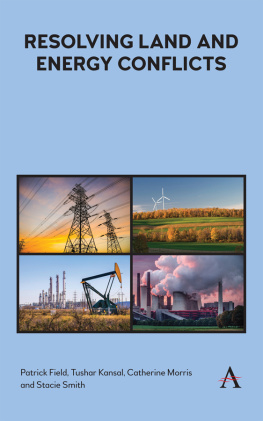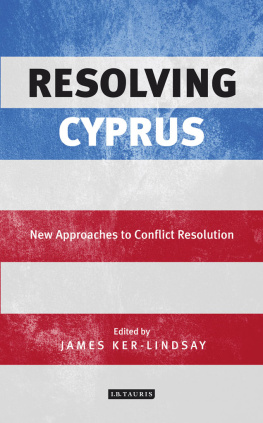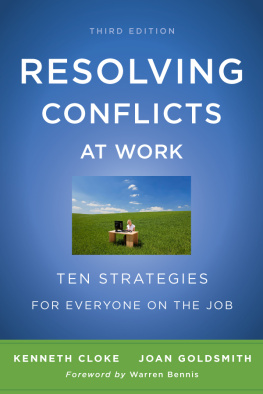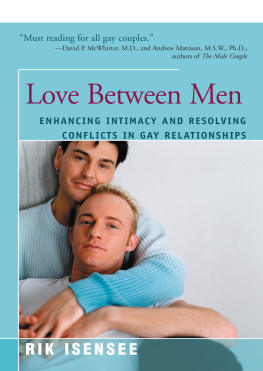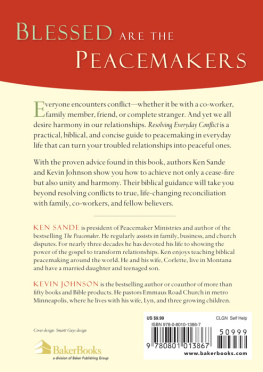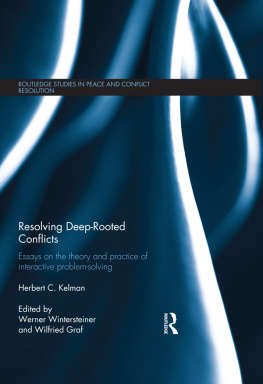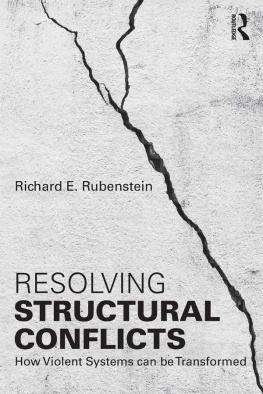Resolving Land and Energy Conflicts
ANTHEM ECOSYSTEM SERVICES AND RESTORATION SERIES
The Anthem Ecosystem Services and Restoration Series presents lessons for practical decision making by governments, businesses and NGOs seeking to incorporate the language and logic of ecosystem services into their activities. Ecosystems provide valuable services to individuals, organizations and society more generally, but the practical application of this principle is not at all straightforward. Policymakers, businesses and advocacy organizations around the world are developing innovative ways of incorporating ecosystem services into decision making through the creation of markets, trusts and policies of various kinds. This series seeks to develop a better understanding of the strengths and weaknesses of these initiatives and to generate a more informed understanding of which interventions result in the most effective and sustainable outcomes.
Series Editor
Lawrence SusskindMassachusetts Institute of Technology, USA
Editorial Board
Marina AlbertiUniversity of Washington, USA
Jayanta BandyopadhyayIndependent policy researcher in environment and development, India
Robert CostanzaAustralian National University, Australia
Marta EchavarraEcodecision, Ecuador
Pushpam KumarUNEP and University of Liverpool, UK
Matthias RuthNortheastern University, USA
Anne SpirnMassachusetts Institute of Technology, USA
Resolving Land and Energy Conflicts
Patrick Field, Tushar Kansal, Catherine Morris and Stacie Smith
Anthem Press
An imprint of Wimbledon Publishing Company
www.anthempress.com
This edition first published in UK and USA 2018
by ANTHEM PRESS
7576 Blackfriars Road, London SE1 8HA, UK
or PO Box 9779, London SW19 7ZG, UK
and
244 Madison Ave #116, New York, NY 10016, USA
Patrick Field, Tushar Kansal, Catherine Morris and Stacie Smith 2018
The authors assert the moral right to be identified as the authors of this work.
All rights reserved. Without limiting the rights under copyright reserved above, no part of this publication may be reproduced, stored or introduced into a retrieval system, or transmitted, in any form or by any means (electronic, mechanical, photocopying, recording or otherwise), without the prior written permission of both the copyright owner and the above publisher of this book.
British Library Cataloguing-in-Publication Data
A catalogue record for this book is available from the British Library.
ISBN-13: 978-1-78308-852-2 (Hbk)
ISBN-10: 1-78308-852-4 (Hbk)
This title is also available as an e-book.
Contents
Patrick Field is managing director at the Consensus Building Institute and associate director of the MIT-Harvard Public Disputes Program. Field has helped thousands of stakeholders reach agreement on energy, land use, development and natural resource management issues across the United States and Canada. He has worked with water utilities, communities, agencies and companies around gas and oil development, from the Osage Nation in Oklahoma to communities in California, Pennsylvania, North Dakota, Texas and Colorado. He has worked on wind energy siting issues, including science collaborative around bat-wind energy conflict, wind energy siting and landscape values in North Dakota, Michigan and Massachusetts, as well as offshore wind siting with states and communities from Massachusetts to North Carolina. He has worked on transmission cases from New Hampshires state energy siting laws and policies with the New Hampshire legislature to work with two large regional transmission organizations, MISO and PJM, to expansion of Tampa Electrics transmission lines. He has worked on gas and oil pipelines, including a series of joint trainings with the First Nation Tax Commission and the Canadian Energy Pipeline Association across western Canada. He was an energy efficiency planner for the Commonwealth of Massachusetts planning and construction agency between 1989 and 1992. He is coauthor of the award-winning book, Dealing with an Angry Public, Land in Conflict: Managing and Resolving Land Use Disputes and Managing Climate Risks in Coastal Communities: Strategies for Engagement, Readiness and Adaptation. Field is listed on the roster of conflict resolution professionals of the US Institute for Environmental Conflict Resolution, the US Environmental Protection Agency and the US Department of Interior. He holds a masters in urban planning from the Massachusetts Institute of Technology and a BA from Carleton College, Northfield, Minnesota.
Tushar Kansal is a senior associate at the Consensus Building Institute. He has five years of experience as a facilitator, mediator and trainer in collaborative problem solving and negotiation within and across organizations. He has worked extensively in public policy issues over a broad range of areas, including energy and natural resources, climate change, land management, scientific and technical issues and water resources. Kansal also works with organizations to develop collaborative governance structures and strategic plans and is adept working across and between sectors with government, nonprofit and business leaders. He builds consensus and collaboration capacity on a wide range of issues, including renewable energy, oil and gas development and other forms of energy and extractive resources; management of oceans, coasts and marine resources; education; revitalization of national parks; and the management and health of groundwater and surface water sources. Kansal has also led strategic planning, visioning and other organizational development efforts at local, national and international scales, working with groups ranging from a 300-resident island community whose existence is threatened by sea level rise to a 26-member nation body that manages more than half of the worlds tuna catch. Finally, Kansal has facilitated the efforts of roundtables and other efforts to drive corporate supply chain sustainability, including in the aquaculture, beef and egg industries. Kansal holds a masters in city planning degree from the Massachusetts Institute of Technology and a BA from Wesleyan University.
Catherine Morris is a senior mediator at the Consensus Building Institute. Morris has more than 15 years of experience as a mediator and consensus builder and over 20 years of experience in energy and environmental regulation and policy. She has helped stakeholders collaborate on advancing rural electrification in Africa and Asia, development of large-scale renewable energy projects in New York, the role of US nuclear power to address climate change and transmission needs in the eastern United States to support a clean energy future. With a grant from the Lincoln Institute on Land Use Policy, she led a national workshop on barriers to siting interim storage for nuclear waste and has worked with the state of Vermont to help form a Citizens Advisory Board to advise on the decommissioning of Vermont Yankee nuclear plant. She has led communities facing the economic and environmental challenges through a process to envision and take ownership of a different future. Morris has also facilitated the formation of both private and nonprofit organizational partnerships to strengthen their ability to implement strategic and systemic change at the local, national and international levels. Before becoming a trained mediator, Morris worked for the Massachusetts regulatory commission, US EPA, and for an energy engineering firm and an air quality and climate change think tank. Morris has a BA in economics from the College of William and Mary and an MRP in economic and environmental planning from University of North Carolina.

